The Friendly Fire Room Presents
Listen And See
Thank you Wanda Barlow for this great idea!
Genesis Framework Pt 18: Dirt Management Part 1
Dirt Management Pt 1
To God be the Glory, great things He has done.
mcmtffr.org wishes to acknowledge and thank Derek Konofalski and Rocket Media for making this page:
Mobile Friendly
Dirt Management
December 27, 2015
Next week we’ll be starting to ramp up with our
friend Meredith Kline and getting back into the highway
flow of Genesis Framework.
But today I want to simply break the inertia of rest and touch lightly on an idea which was set into place way back in the garden, one that also affects us today; namely,dealing with dirt.
As you all know by now, over the last several months since mid-May, I have gotten very close to the subject of dirt out of necessity while doing a major property clean-up down on Road 84. In the process I have learned a few things about what I call, dirt management.



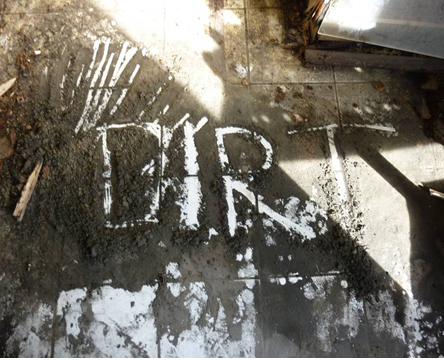

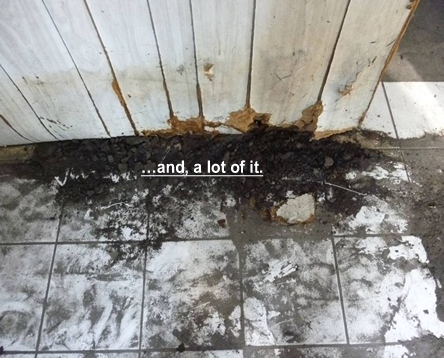
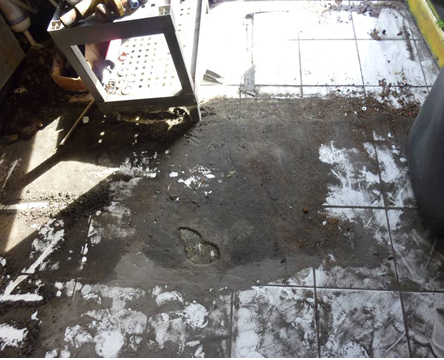















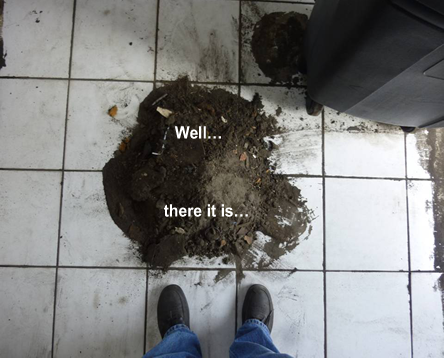
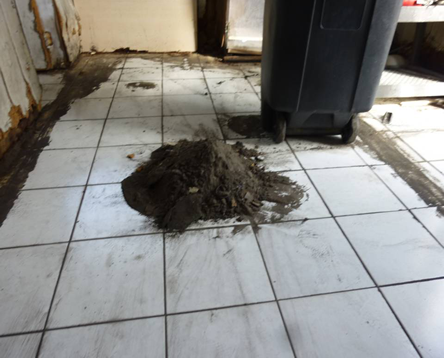
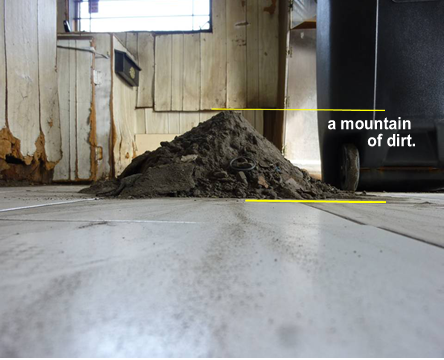
Today, the link of dirt back to the garden is fairly direct.
Dirt has been around since God’s creation of all things.
NKJ Genesis 2:7
And the LORD God formed man of the dust of the
ground, and breathed into his nostrils the breath of life;
and man became a living being.
The impact of the Fall was very great.
If we look at one narrow aspect of it with regard to dirt, we see that in Genesis 3.14, the phrase God declared unto the serpent by God was, “You shall eat dust.”
So, let’s start collecting facts:
1. Dirt and dust are used in Scripture as a figure to express the idea of extreme humiliation.
NKJ Genesis 3:14
So the LORD God said to the serpent: "Because you have done this,
You are cursed more than all cattle,
And more than every beast of the field;
On your belly you shall go,
And you shall eat dust All the days of your life.
In Genesis verses 3.17-19, Adam is shown to have the greatest responsibility in the Fall event, and his sentence of judgment is the longest and most comprehensive.
NKJ Genesis 3:17b
"Cursed is the ground (dirt) for your sake;
In toil you shall eat of it
All the days of your life.
NKJ Genesis 3:18
Both thorns and thistles it shall bring forth for you,
And you shall eat the herb of the field.
This points directly to a marring of man’s fundamental role as laborer/ provider; namely, work shall be with difficulties and futilities figured by thorns and thistles, and the extra toil of overcoming reluctant soil that formerly had been divinely cooperative,,before the Fall.
2. Dirt is something which must now be managed and controlled in order for it to be productive.
NKJ Genesis 3:19
In the sweat of your face( toil) you shall eat bread
Till you return to the ground,
For out of it you were taken;
For dust you are,
And to dust you shall return."
3. Dirt is the absolute lowest of things of all creation, and it’s always near at hand, serving as a constant symbolic reminder of the lowliness of our origin; yet ironically we have been given derived dominion responsibility to manage all the earth.
This Scripture also informs us of the life-long struggle which will then end in death.
4. The presence of dirt is also a constant reminder of the kind of death we brought on ourselves in the beginning by being negligent and failing to do the required thing at the tree.
5. Dirt build-up or accumulation as the result of neglect in exercising our obligation to deal with and to actively manage unholy dirt, is also a bitter reminder of our failure at the tree and the abrogation of our priestly role.
Then the humiliation continues in practice…
NKJ Genesis 3:23
therefore the LORD God sent him out of the garden of
Eden to till the ground from which he was taken.
6. Both death and life are linked to dirt; all the more reason we must seek to manage dirt properly.
NKJ Genesis 28:14
"Also your descendants shall be as the dust of the earth;
you shall spread abroad to the west and the east, to the
north and the south; and in you and in your seed all the
families of the earth shall be blessed.
7. Dust and dirt, because of the minutia of its particulates, is figurative in its likeness to vast, uncountable numbers of things.
NKJ Isaiah 57:20
But the wicked are like the troubled sea,
When it cannot rest,
Whose waters cast up mire and dirt.
NKJ Psalm 18:42
Then I beat them as fine as the dust before the wind;
I cast them out like dirt in the streets.
NKJ 2 Samuel 22:43
Then I beat them as fine as the dust of the earth;
I trod them like dirt in the streets, And I spread them out.
8. The presence and removal of unsolicited dirt, representative of the products of unrighteousness and uncleanness, outcomes of low value, must never be something we habitually ignore or neglect to deal with when we encounter it face-on.
Neglect is literally what got us into the Fall in the first place.
Soon we will be looking carefully into the tree incident in the garden, but know this: the tree of the knowledge of good and evil was a probation tree, and was intended to be an instrument in man’s exercise of the royal-priestly function of rendering judgment, the function inherent in his status as image of God.
Man as priestly guardian of the temple-garden of God had been expected to enforce the demands of God’s exclusive holiness against the unholy intruder. It might seem strange or ironic to us, but this tree simultaneously signified something to do as well as something not to do. It would appear with certainty that the name of the tree pointed not so much to something man would acquire as to something he must do… …to engage in the action of judgment based on his knowledge of good and evil already given to him by God.
From the vantage point of God’s purpose, Satan’s advent into Eden with all his deceitfulness of unrighteousness should be seen as nothing less than a delivering over of the devil to man for judgment! Adam was supposed to have risen up in holy judicial wrath and cleansed God’s temple. The proper obligation of Adam as faithful priest was to have promptly opposed and denounced and expelled the blasphemous tempter, instead of bowing to his lordship.
So, what is dirt management all about?
We constantly face the place of the tree, in a sense. The place of the tree is the moment when the knowledge of good and evil is to be engaged to produce righteous action:
- by pronouncing judgment of good and evil,
- in enforcing goodness in management,
- by not allowing dirt and dust, or any form of uncleanness to overtake God’s place in our lives,
- by not ignoring or abdicating our given responsibility to manage dirt.
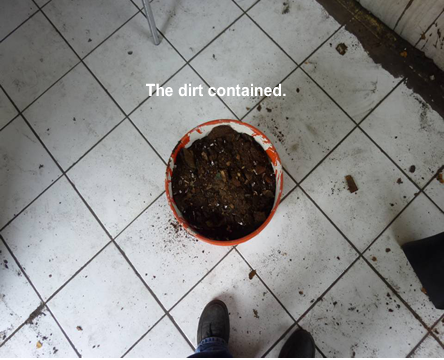
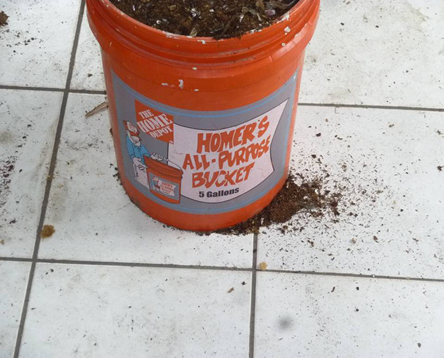

So, let’s…
- advance the glory of God’s sovereign reign,
- act in our likeness to His judicial likeness as Lord,
- and when it comes to doing our part by faithfully fighting the Lord’s battle in war against Satan, to recognize that while the battle does truly belong to the Lord, we have been delegated to participate actively in it for His glory.
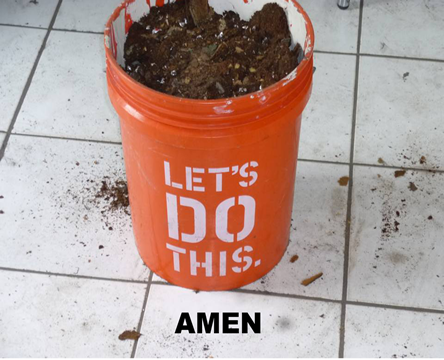
Many will be surprised on the Day of Judgment when they discover that it was just as the Word of God says; only the righteousness of Christ is able to save you.
All men are sinners and no one can save himself. God is just, so He must punish sin; but He is also merciful, moreover gracious, and offers His Son as the perfect sacrifice in order to purchase a place for you in heaven, which He offers to you as the free gift of eternal life.
Jesus is God Incarnate
In order to pay the debt of our sins,
He came from Heaven, having been sent by the Father,
where He lived a life of perfect obedience to the Father
even unto the shameful death upon the cross
in order to pay the debt of your sins. This gift must be received by faith,
believing that Jesus’ perfect life and Cross Work was His complete and necessary Atonement for your sins, in your behalf. Faith is a gift that comes by the Power of God the Holy Spirit working in a person’s innermost being. The Holy Spirit has the authority and power to quicken your dead spirit, to make it come to life. If you have not done so before this moment,
ask Jesus to forgive you your sins,
tell Him you’ve stop trying to be your own savior,
and ask Him to come into your life right now,
and to give you eternal life. Then, in faith believing,
thank Him for the gift that He is giving you,
the one He paid for in full in your place,
in Jesus’ name, AMEN
Bibliography
Agnes, Michael and Charlton Laird (eds.). Webster’s New World Dictionary and Thesaurus. New York, NY: Macmillan, 1996.
Aland, Kurt, Matthew Black, Carlo M. Martini, Bruce M. Metzger, and Allen Wikgren (eds.). The Greek New Testament, 4th rev. ed. Germany: Biblica-Druck, 1994.
Benner, Jeff A. The Ancient Hebrew Lexicon of the Bible. College Station, Texas: Virtualbookworm.com Publishing Inc., 2005
Bullinger, E. W. Figures of Speech Used in the Bible; Explained an Illustrated. Grand Rapids, Michigan: Baker Book House, 2007.
Chapman, Benjamin. Greek New Testament Insert. Grand Rapids, Michigan: Baker Book House, 1977.
Dana, H. E., and Julius R. Mantey. A Manual of the New Testament. Canada: The Macmillan Company, 1957.
Louw, Johannes P. and Eugene A. Nida. Greek-English Lexicon of the New Testament Based on Semantic Domains. New York, NY: United Bible Societies, 1989.
The ESV Study Bible. Wheaton, Illinois: Crossway, 2011.
Metzger, Bruce M. Lexical Aids for Students of New Testament Greek. Princeton, New Jersey, 1977.
Wikipedia contributors. "Xenophon." Wikipedia, The Free Encyclopedia. Wikipedia, The Free Encyclopedia, 15 Aug. 2014. Web. 19 Aug. 2014.
Wuest, Kenneth S. The New Testament; An Expanded Translation. Grand Rapids, Michigan, 1992.
Wuest, Kenneth S. (Revised, Donald L. Wise). The Practical Use of the Greek New Testament, rev. ed. Chicago, Il: Moody Press, 1982.
Walsh, J. Martyn and Anna Kathleen Walsh. Plain English Handbook: A Complete Guide to Good English, 7th rev. ed. Cincinnati, Ohio: McCormick-Mathers PublishingCompany,1977.
Copyright December, 2015
Rev. Jim Craig
All Rights Reserved